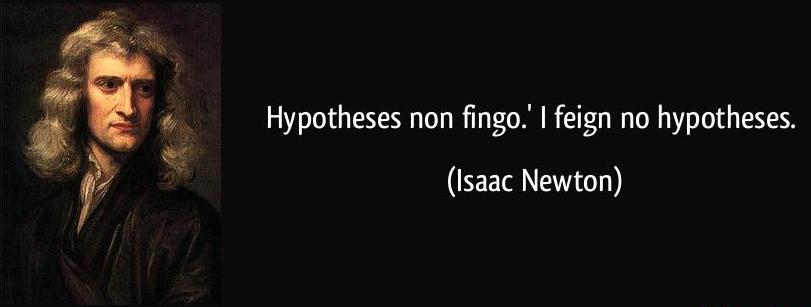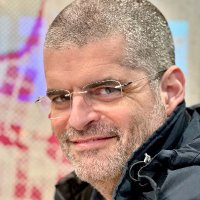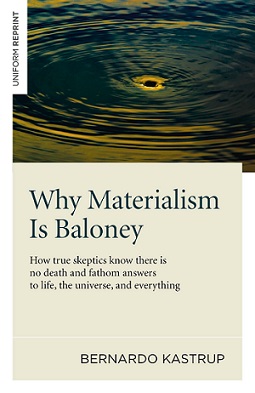|
home | what's new | other sites | contact | about |
||||
|
Word Gems exploring self-realization, sacred personhood, and full humanity
Kairissi & Elenchus
return to Omega Point 'contents' page
Kairissi. The “quantum mechanics” (QM) page has grown into a hefty collection of over 100 articles. I have to admit that, when I review that morass, there’s much I don’t understand. Elenchus. I think we’re in good company there. David Bohm, arguably one of the very best minds of the twentieth century, chuckled to admit that he didn’t understand ‘string theory’ very well. Further, he said, almost none of his fellow physicists understood it. To become proficient with the string-theory mathematics, he asserted, would require years of study, which, he opined, wouldn’t be worth it. He said you won't be missing much by not studying string theory. K. And now we want to ask, why wouldn’t it be worth it? - as string theory is a famous concept. E. It’s famous but, as Bohm intimated, unwarrantedly so. There are over 20 interpretations of QM, however, as Dr. Bohm hinted at in one of his lectures, they’re just empty hypotheses with no research data to back them up. It’s Newton’s nightmare with his famous saying:
E. Essentially, Newton was saying, (Latin) “Hypotheses non fingo” – translated as, “I feign” or “contrive” or “construct no hypotheses”; that is, no hypotheses should be entertained unsupported by induction, a rigorous fact-gathering process. To do otherwise, he would assert, invites personal prejudice, private agendas, and hobby-horse riding. K. And that’s what we see with most of the so-called “20 interpretations.” It’s a form of politics in a plastic-tinsel wrapper of science-talk. What’s really going on is, if you don’t like the non-materialistic data coming in to support Copenhagen and Bohmian mechanics, well then, let’s just invent a new hypothesis to dilute the impact of the competition; take two, they're cheap and not that filling. E. One science writer wryly commented that every year or so there's some new purported interpretation of QM. They keep popping like popcorn; but, he said, none of the old ones ever go away. K. They're kept on the list in hopes of a "hail mary pass" to victory over Copenhagen and Bohmian mechanics. In any case, they're good for distraction from what really works. E. I’d like to clarify for our readers that we preface our primary discussion here with the caveat “hypotheses non fingo” because QM is not immune from today’s barrage of propaganda and fake-news. So much of what people chatter about in QM, such as the “many worlds” theory, is just a fairy-tale, or "the attorney's last resort" ploy, with no supporting empirical data. K. And so we’ll be basing our discussion on research-supported aspects of QM, not the purely speculative. E. And this takes us, in the main, to the fields of Copenhagen and Bohmian mechanics. And so, Kriss, where shall we begin? K. We’ll have to stay close to the major ideas, but even this is no small project as depth here quickly takes us over our heads. But I would suggest we start by bringing to the fore Bohm’s formidable concept of “wholeness.” E. It’s so important that we could spend our entire discussion just exploring this one idea. K. Let me tell you what “wholeness” reminds me of. Remember way back in "The Wedding Song" where we talked about "the Eternal is One" and "God as singular, pervasive reality"? The author wrote this: See the Word Gems site for discussion of the work of Dr. Gerald Dr. Schroeder explains that a more complete meaning of “the Eternal is One,” supported by the Hebrew text, indicates that God’s essence pervades and underlies all of existence; which is to say, there is nothing else in the entire universe, nothing other than the Mind of God, the Universal Consciousness and Intelligence, and expressions of it. E. There are many things in the Bible which do not reflect a spiritual mind nor “what is”; however, the person who wrote Deuteronomy channeled some excellent information from the other side concerning the nature of God and reality. K. Somebody over there knew of "the implicate order" about 4000 years before Bohm came up with it. E. It's likely that Bohm was given this concept from next world, as well. K. God as singular, pervasive reality is just another way of expressing Dr. Bohm’s concept of “wholeness” as the underlying “implicate order” from which all matter and the universe unfolds.
isomorphic E. Wholeness and the implicate order are synonyms for Universal Consciousness. With this in mind, I’d like to introduce an idea from another great scientist, Dr. Frederico Faggin. In 1971 he developed the first silicon chip, the microprocessor at the heart of all electronic devices today. In recent years, he's become convinced, along with Bohm and many other physicists, that consciousness, not matter, is foundational to reality. K. There's a word Dr. Faggin used which, to us, is very suggestive of deep meaning. E. He said that "The structure of matter is isomorphic [“equal form”] to the cognitive structure of consciousness, which can reflect itself [in matter]"; our "bodies reflect the accumulated learning of consciousness; matter is the ink with which consciousness writes its own self-knowing." K. Ellus, explain to everyone in simple language what Dr. Faggin is talking about. E. This is incredibly interesting. He’s saying that what we see in the physical world is a kind of mirror of what the hidden “implicate order” conceals. K. This would mean that the “explicate order” is “isomorphic” to the hidden realm of Universal Consciousness. E. “Isomorphic” suggests a one-to-one relationship. This mirroring is not to be taken literally, in that, there are no rocks, trees, and people in the secret realm of consciousness. Faggin uses the term “cognitive structure.” That’s a great phrase. It means that the physical things we see in the universe are “isomorphic” to the “cognitive structure of consciousness.” K. If this is correct, and I think it is, it means that the hidden world of Universal Consciousness is not so absolutely unknowable as we might have thought. E. It means that we can discern some things about “God as singular, pervasive reality.” And what we can know, or at least glimpse, has to do with thought structures. K. Our thought structures, to some degree, are “isomorphic” to the mind of God. E. It’s like finding the Rosetta Stone of hidden reality. As we “go within” and learn more about the “true self,” we also gain a glimmering of the nature and mind of God. K. Bohm was right in line with this. One biographer said: "Bohm placed more faith in intuition as a way of arriving at solutions than in the more common way of mathematics... He also believed that by paying attention to his own feelings and intuitions, he should be able to arrive at a deeper understanding of the nature of the universe of which he was part." E. This is great stuff. The scientific method, of course, has its place, but the way of intuition is lauded by the most creative minds. K. The temperature in the room is rising now. And you know what? – all this sheds much light on a famous term in the Bible which has confused millions down through the ages – “made in the image of God.” E. What a great example, Kriss! Each of us has been created as “isomorphic” to the image of God. And what is that “image”? It is the thought structures, the cognitive capacities, of the mind of God. K. Now, here’s where the fun starts. Let’s think about this in practical terms. What does this “isomorphism” really say about God? E. Here’s one thing. I think we are “persons,” enjoy personhood, because God is a person. I don’t believe we could have this kind of subtle, multi-attributed sentience if God were not the archetype of personhood. K. Yes, I love that. And I would take that a small step farther to suggest the same for “personality,” a distinctiveness of sentience. I’m not sure what that means for God who seems to be “omni” this-and-that, but maybe it means that each of us is one facet of the diamond and God is the whole sparkling gem. E. Very good. And I’d like to offer this: Many times, among religious and mystical thinkers, when they speculate on the nature of God, they’re always quick to assert that “God is not a personal God” – which makes me smile, as if they would know this, but they're very confident. Granted, God is not some sort of “sky-god with a long white beard on an immovable marble throne” somewhere, we’re beyond that nonsense, but I don’t see how God could teach us individually, care for us individually, and so many related concepts, if God were not a “personal God.” K. And, again, you and I and all of us are personally oriented beings. Where did we get this desire for relationship? This kind of high-level sentience, this proclivity toward close affinities, could not have just happened. I think the answer is we’re “isomorphic” to a personal God.
E. As you mention the word “relationship,” I’m reminded of something Dr. Ian McGilchrist said. He’s a psychiatrist, brain-disease researcher, who understands that consciousness is primary in the universe. He feels that “relationship” might actually serve as synonym for Universal Consciousness. This makes sense because, we say God is love, and what does that mean? – God is in relationship with us. K. And, of course, this sense of relationship as primary importance reaches us as children of God. E. Now, let’s focus more closely on this aspect, as you said, of “desire for relationship”. We want to understand more about this. K. “Made in the image” extends to the detail of “male and female.” Again, let’s allow “isomorphism” to instruct us. The mirroring aspect is a “cognitive structure” of Universal Consciousness, not that there is a literal Man and Woman running the universe. But, is some sense, the cognitive capacities of male and female are built into the mind of God. We discussed this at length in a related article. E. So, Kriss, tell me – what does all this suggest concerning true love and true marriage? K. I’m with Bohm on this, how he solved problems. I look within. And when I do, I see an overriding desire to share my life with one particular other. These feelings of union, of oneness, of harmony, extend well beyond instinctual leanings toward perpetuating the species. That’s not it. E. Then what? K. Bohm was on to it. He saw the fundamental element of all existence, of reality itself, as a tendency toward unity, a coming together, a “wholeness.” And two lovers, made for each other, mirror, within their deepest hearts and being, this essential nature of the universe – which is God’s mind.
|
||||
|
|




